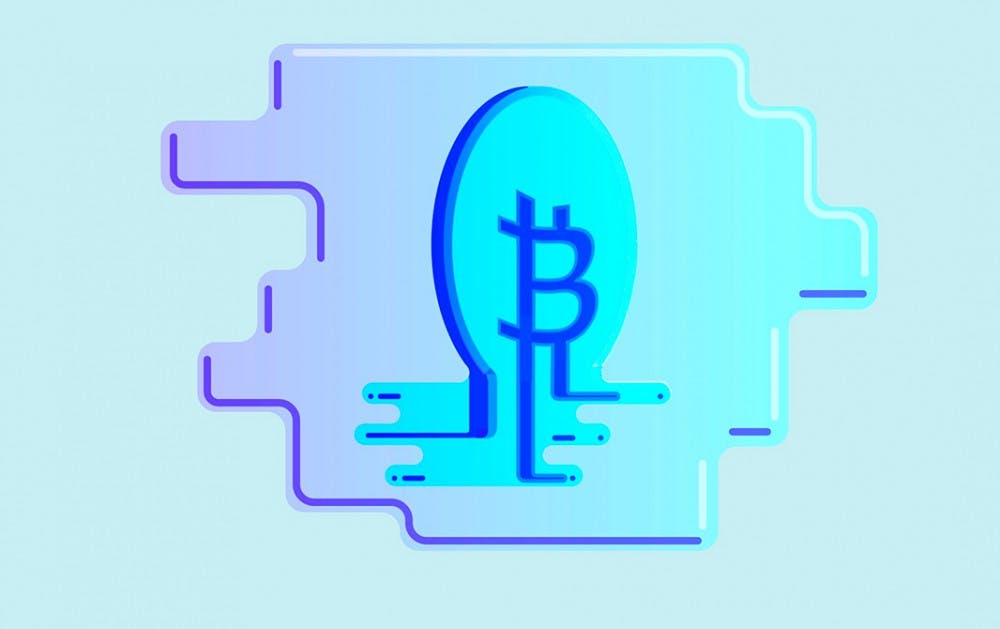The ongoing debate over whether people should invest in Bitcoin is lively and divisive, especially among college students because of the low financial entry requirement.
Programs and clubs at ASU like the Blockchain Innovation Society explore cryptocurrency as an investment, and the discussion has continued on in multiple posts here at The State Press alone.
Some of the main criticisms about Bitcoin are that it is not backed by anything, it's extremely volatile and it's used for illegal transactions like purchasing illicit drugs. All of these criticisms are superficially true but do not actually detract from the legitimacy of cryptocurrency as an addition to a student's portfolio.
The claim that Bitcoin is not backed by anything seems to be one of the most common criticisms about cryptocurrency as a whole.
If an asset is backed, it means that it can be redeemed for a set amount of something else. The fact that Bitcoin has no backing seems like a drawback as an investment for a college student, considering an already notoriously frugal group of people would not want to risk losing their entire investment.
The claim that Bitcoin and most other cryptocurrencies are unbacked is true, but neither are most financial assets that we rely on daily.
It's theoretically correct that if the demand for Bitcoin vanished, any bitcoin would be worth zero. Assets like store credit or gift cards could lose value if the company in question disappeared, but neither seem likely to happen in the immediate future.
Even our dollar became an ‘unbacked’ asset when the U.S. abandoned the gold standard in 1971, meaning that, exactly like Bitcoin, it is only worth whatever goods or services people will exchange for it.
The volatility of cryptocurrency is a turn-off for some students, as many cannot afford to take heavy losses. Willy Woo, a cryptocurrency analyst whose work has been featured in Forbes, reports on his website that as of Feb. 15, Bitcoin is about five times as volatile as emerging market currencies and oil — the next two most volatile assets on his list.
The obvious counter is that high volatility increases the potential reward alongside the risk. However, cryptocurrency may still be a good addition to a portfolio even for the risk-averse.
According to Jeremy Liu, a computational mathematical sciences sophomore at ASU and co-founder of Blockchain Innovation Society, cryptocurrencies are useful to diversify a collection of investments because their price fluctuations are relatively separate from the rest of the market.
“Adding Bitcoin may reduce the overall volatility of the portfolio,” Liu said.
Another criticism is that Bitcoin is used for illegal transactions. Some students may feel that it is unethical to profit off a currency enabling such illegal activity, and others may fear future legal ramifications for Bitcoin users, such as asset seizure or freezing.
The claim that Bitcoin is used for illegal transactions has some truth to it. In fact, the price of Bitcoin fell more than 50 percent following the closure of the Silk Road in 2013, suggesting that a large portion of its utilization at that time was for black market goods.
However, a lot has changed since then. The core of Bitcoin’s technology has always been a blockchain, containing a public list of every Bitcoin transaction that has ever taken place. Despite its extreme traceability, Bitcoin was anonymous because a public key or ‘sender's address’ could not be linked to a person. Now that popular exchanges like Kraken require users to verify their identity to buy and sell cryptocurrency, this is not the case.
Obviously, there are still ways to anonymously obtain cryptocurrency that could be used for illegal transactions. However, an article fromThe Washington Post suggests that drug deals are primarily hand-to-hand transactions arranged over cell phones.
“People are always going to find a way to do something illegal,” Liu said.
While illegal transactions over cryptocurrencies are possible, it seems many people still prefer the convenience of buying their drugs with plain old cash. Arguably, cryptocurrencies are not enabling anything that wouldn’t happen anyway.
Cryptocurrencies are a valid financial asset for investment, and there are many besides Bitcoin to consider. Coinmarketcap currently lists more than 1,500 cryptocurrencies, hundreds of which have a reported market capitalization over $1 million.
Whether ASU students should add cryptocurrencies depends largely on their individual risk tolerance and the rest of their portfolio, but it is definitely worth considering. Misinformed fear-mongering should not dissuade ASU students from evaluating this growing industry for themselves.
Reach the columnist at rdougla3@asu.edu or follow @rossdougla on Twitter.
Editor’s note: The opinions presented in this column are the author’s and do not imply any endorsement from The State Press or its editors.The author of this column has invested in cryptocurrencies but is not a professional investment consultant.
Want to join the conversation? Send an email to opiniondesk.statepress@gmail.com. Keep letters under 500 words and be sure to include your university affiliation. Anonymity will not be granted.
Like The State Press on Facebook and follow @statepress on Twitter.




